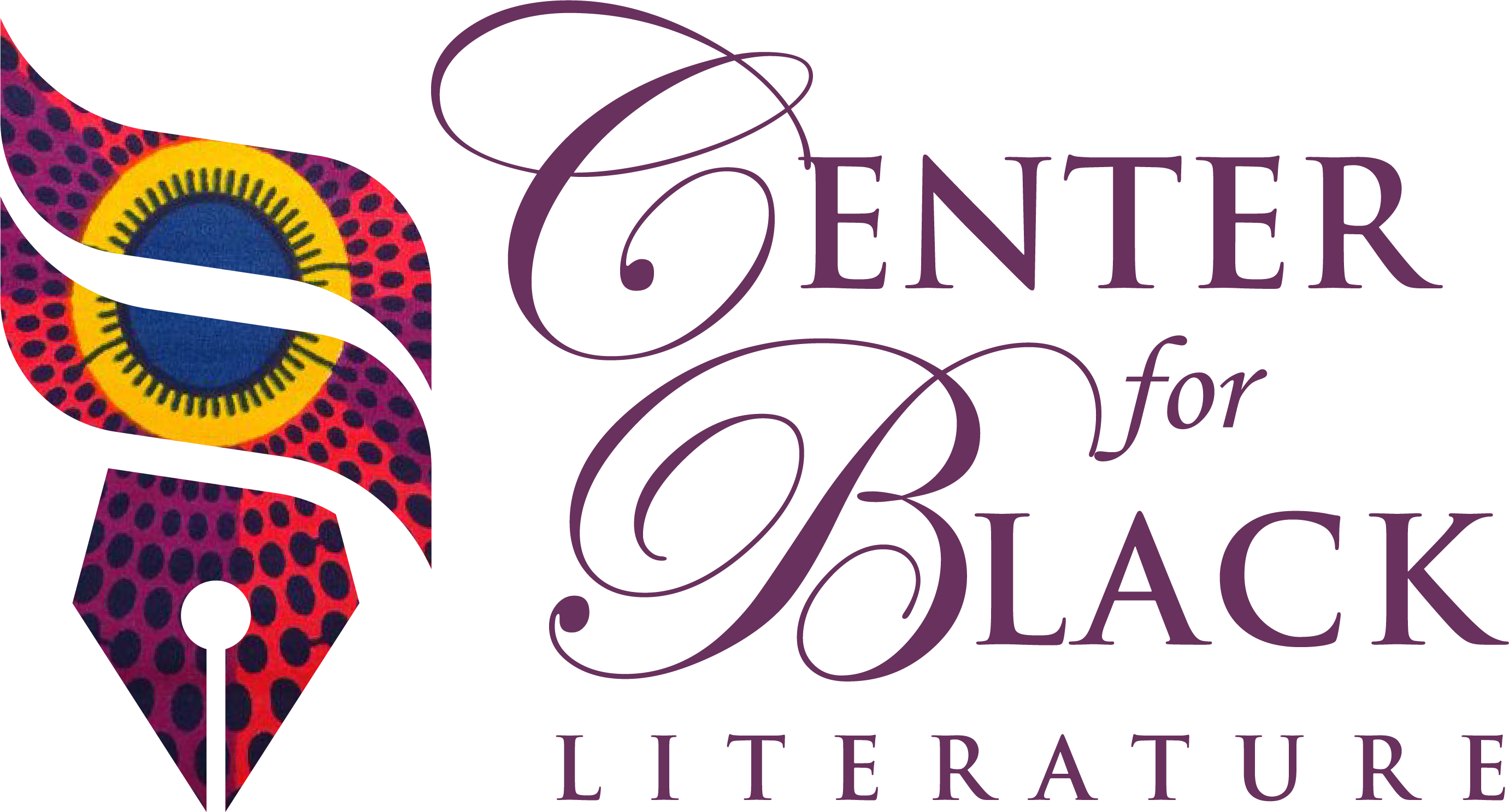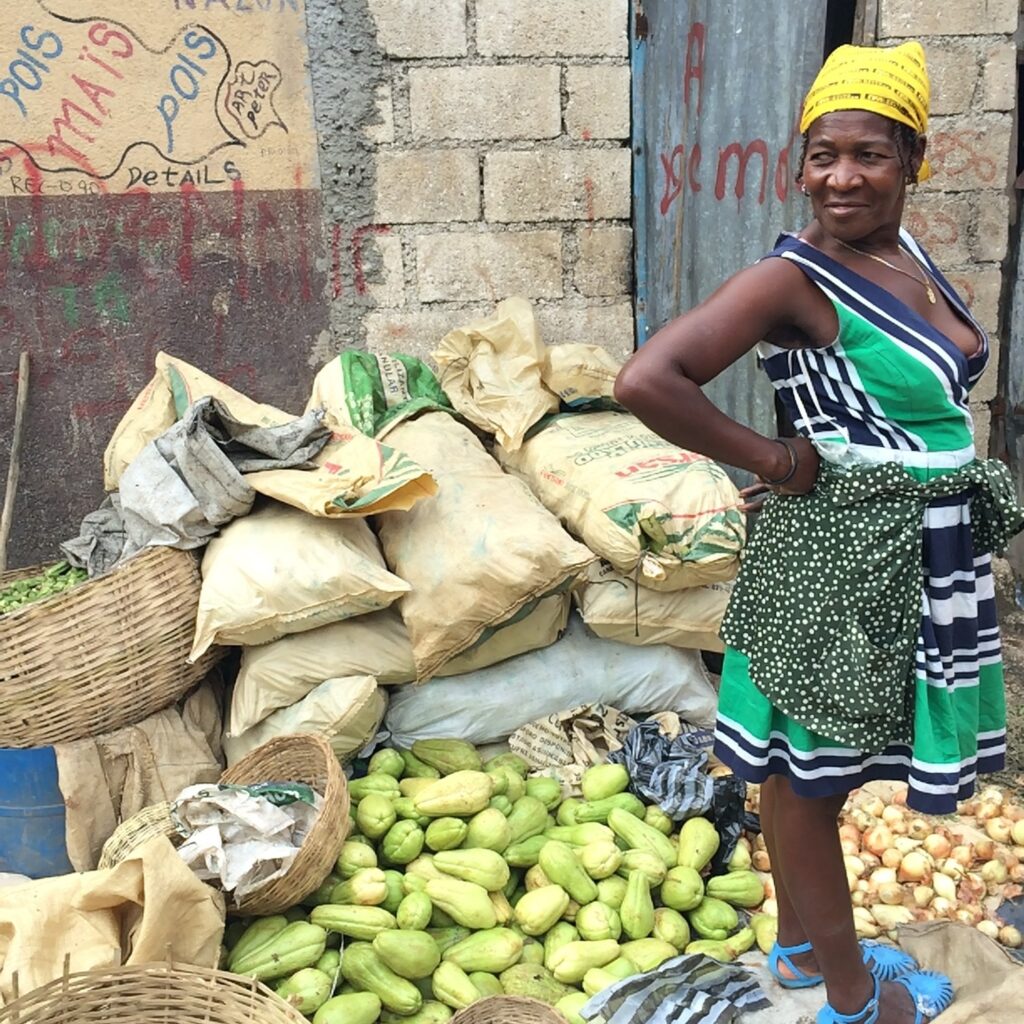Levi Wise-Catoe | The documentary from Etant Dupain, Madan Sara (2021), foregrounds the hard-working women at the heart of Haiti’s economy. I had the chance to see the documentary when it screened at Medgar Evers College on February 5, 2024, followed by a Q&A with the film’s co-executive producer, Lulaine Childs. The issues raised by the film resonated deeply at this moment, as Haiti faces a new crisis and the hard-won stability of the Madan Sara is threatened. The film is entirely in Haitian Creole and features one-on-one interviews, archival footage from Haitian revolts, and television news footage from the uprisings that have taken place in Haiti in recent years that have negatively impacted the country.
I was deeply impressed with the documentary and I felt empathy for the Madam Sara community. Because of the similarities in the African Diasporic experience, I connect to their experience in Haiti as if it were my own in the United States, although we were divided geographically through the Trans-Atlantic Slave Trade. I hope that everyone has a chance to view this film and that it sparks discourse around the Madan Sara and the ongoing struggle for national autonomy in Haiti. It’s a conversation that is centuries in the making and needs, more than ever, to be had. To learn more about the film and the “Madan Sara,” I caught up with the film’s co-executive producer, Lulaine Childs.
Levi Wise-Catoe: Hi Lulaine! Could you please explain what the film Madan Sara is about and who the “Madan Sara” are?
Lulaine Childs: The women known as Madan Sara in Haiti work tirelessly to buy, distribute, and sell food and other essentials in markets throughout the country. Despite the obstacles faced by the women working in a sector that lacks investment, infrastructure, and state assistance, the Madan Sara continues to be one of the most critical parts of the Haitian economy and of who we are as a country. The Madan Sara documentary tells the stories of these indefatigable women who work at the margins to make Haiti’s economy run. Despite facing intense hardship and social stigma, the hard work of the Madan Sara puts their children through school, houses their families, and helps to ensure a better life for generations to come. This film amplifies the calls of the Madan Sara as they speak directly to society to share their dreams for a more just Haiti.
LWC: I loved the movie. What was your filmmaking process like? Was it an easy process or was it difficult? And if it was easy or difficult, how?
LC: Independent filmmaking is always a difficult process because funds are limited and time is of the essence. For this film, it wasn’t a particularly hard process because Etant, Tina, Natalie, Wesly, and the rest of the team really did the heavy lifting. I think having a good team in place is key to making the process easier because doing this alone would be very difficult even for the most seasoned filmmaker.
LWC: In the film, Haiti is depicted as a community held together by strong Black women and by Black women’s entrepreneurship. Do you feel that is something that connects to the Black community in the US as well, where the Black community is often held together by strong Black women?
LC: I think it’s a common thread among the African diaspora. The strong Black woman has been and continues to be the “poto-mitan” of the society [note: the “poto-mitan” is a pillar that is found as the central architectural feature of Haitian vodou temples]. Nothing moves without their participation. A lot of times the leadership of men is talked about and heralded. Oftentimes, Black women still have a hard time getting heard, although it has gotten better over the years. You find them being the head of a lot of households, they are the ones who are doing the organizing, and sometimes they are the faces of certain movements. Without the women being as strong as they are, Black communities all over the world would be in a state of chaos.
LWC: What is the message that you would like for people to walk away with after viewing your film?
LC: The Madan Sara, like all women who do their work in the global south, deserve to be praised and the issues that affect them need to be handled so the countries can move forward. Despite all the odds, the Madan Sara have been able to feed their families, put their kids through school, and maintain their lifestyle. However, in these modern times, Haiti as well as other countries where women do this work should find a way to help lighten the burden they carry doing the work. Things like health insurance, property insurance for their merchandise, safe streets, access to credit, clean workspaces, and adequate bathroom facilities at the market, are just some of the things that should be in place for them.
LWC: As a Haitian-American, do you feel more Haitian or American? Which culture defines your character, being Haitian or being a U.S.-American from Brooklyn?
LC: I’m definitely more American from Brooklyn, but the more I learn about Haiti it gives me a better sense of self, if that makes sense. I have come to integrate certain aspects of the culture to my lifestyle.
LWC: How does the strife in Haiti affect you?
LC: Personally, it doesn’t really affect me. My ties to Haiti are limited. However, I do have some colleagues and contemporaries from Haiti I work with, and through them and the news I get an understanding of how bad it is. People have basically had their lives upended because certain people in the country want to keep it on its knees. Anywhere black people are suffering whether it be Congo or Haiti, it’s a terrible situation. Even the situation in Palestine specifically with what’s happening in Gaza and what happened in Israel on October 7th, human suffering is a terrible burden to deal with.
LWC: How do you think your film may change the negative perception that people may have regarding Haiti? Haitians?
LC: I think after seeing the film people will learn something new about Haiti. I also think the film humanizes the Haitian woman who is working as a Madan Sara. When people read or watch the news, they may see a woman selling food in the public market and think nothing of it. I think after watching this film and really getting an idea of what this woman has to do to feed her family, it will give them a different idea of the country and its people.
LWC: In your own words, could you tell the audience of Musings blog why they should all go watch your film Madan Sara?
LC: I think the audience should see Madan Sara because they may learn something new about Haiti. Madan Sara is a different story from the usual stories of disaster and chaos that tend to circulate about the country. While most of those stories are about current events, stories about people like the Madan Sara exist and deserve to be told.
LWC: How do Haiti’s problems and social disorder affect the whole African Diaspora? Are we all impacted by the political rebellion taking place in Haiti? And how difficult was it for you to include gang warfare in your film?
LC: Haiti is arguably the greatest symbol of Black power in the world. Once the country declared its independence by defeating the French and keeping the other world powers at bay, it was a signal to the entire world—especially black people—that freedom and independence were attainable. However, since that time Haiti has suffered for it. Part of it could be a conspiracy by world powers to make Haiti look bad, as some would suggest. I think there are a lot of things happening at the same time. Corruption, bad and weak governance, the lack of true relationships with other countries, the inability to grow the economy, and the unfettered presence of NGOS, in my opinion, have all worked to put Haiti in its current state. I also think part of the disorder is due to the long-lasting impact of slavery and colonialism throughout the African diaspora. I think there are still things we are learning about how slavery was and the mental impact it had on our people. In addition, I think the very real emotional, mental, and physical trauma still rears its ugly head even in the ways we act and how the outside world views the African diaspora. That is the reason unity and economic independence are always talked about, but never really materialize.
LWC: How do you feel regarding current news about the Haitian gangs’ war against law enforcement and the freeing of Haitian prisoners? And how does this affect Black people in the U.S. who are also dealing with our own mass incarceration?
LC: The situation in Haiti continues to get worse because of the insecurity in the country due to the elected officials and others in their positions not doing their work. A situation like a prison break isn’t new in Haiti, but obviously, it is a terrible occurrence on top of the recent events taking place in the country. It just adds to the narrative of the country being chaotic, but it took years to get to this state. A lot of people abdicated their responsibility while in power or were just corrupt officials using their positions and their resources to cause damage to the country. As far as Black people in the U.S. it just gives those who already have negative ideas about us somewhere they can point their finger, making it seem like there is a simple answer. Those same people will ignore everything that came before and the effect it had which may lead to a situation like what’s taking place in Haiti. Corruption, the institutionalization of bad ideas, and the abdication of responsibility by those in power, all play huge roles in the mass incarceration of Black people.
LWC: What film are you working on now?
LC: We are working on a comedy film called Mainland. We are also working on a documentary about the 1974 Haitian World Cup team. We are also helping other filmmakers promote and distribute their projects. One of them is a short film called N’AP Boule by Alexandrine Benjamin, a filmmaker from Haiti.
LWC: Thank you so much for your thoughtful replies, and best of luck in everything that you are working on. I look forward to your further success. Finally, as a filmmaker myself, I am interested if you are also utilizing the film competition route, which helps to build exposure and accolades.
LC: Yes, with this specific film, we entered different film festivals and won some awards. However, we didn’t want to stay in that loop. For documentaries, a lot of the time the different distribution companies that work in the space tend to have a formulaic way of marketing the film, and the ones that approached us about distribution I felt weren’t going to do a good job. So we decided to keep it ourselves and work on the film on our own. We have had a lot of success so far, we are just going to keep going with it.
LWC: Is there anything further that you would like to pass on as far as how someone may be able to find any additional information regarding your film?
LC: Not a problem, we have a website; feel free to use any additional information regarding the story: https://www.madansarafilm.com/

